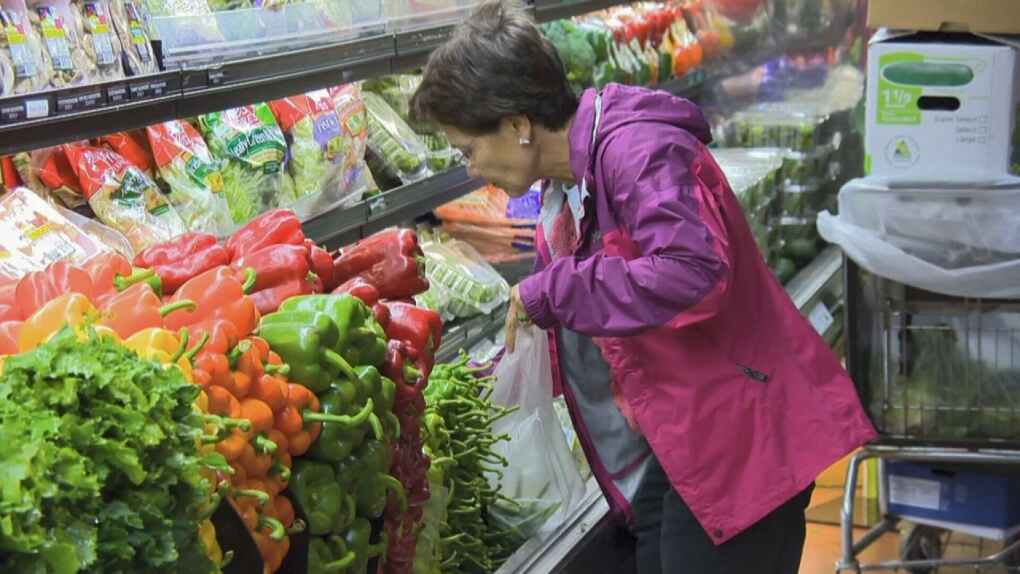
The B.C. government is hoping to get more locally grown food onto tables – something the premier hopes will lead to increased food security and lower prices.
A $200 million fund announced Tuesday will help farmers prepare for climate emergencies and strengthen the supply chain. There’s also funding for food banks to help those who are struggling to afford groceries.
Professor Sylvain Charlebois, director of the Agri-Food Analytics Lab at Dalhousie University, said the announcement could help buffer against future volatility.
«Three years ago was about empty shelves, and a lot of people were concerned about access,» Charlebois explained, «but now it’s about affordability.»
The pandemic, fires, flooding and inflation have all led to higher prices in recent years. The province hopes by increasing the ability to grow food at home, that will change.
Premier David Eby, in making the announcement, said avoiding some shipping and labour costs adds up.
«We can grow it here. We can do it just as well. We can do it cheaper,» said Eby.
At the same time, a Statistics Canada report shows the number of Canadians finding it very difficult or difficult to make ends meet is growing.
Dan Huang Taylor, the executive director of Food Banks BC, welcomed the grants to help charities like his. He said demand is spiking.
«We’re seeing greater demand coming to food banks than we’ve ever seen before. And this has created considerable strain on the system,» Taylor said.
Charlebois said grocery chains – typically generous with donations – are now providing less to food banks. That means food banks need to buy more, and although their buying power is greater than the average consumer’s, it’s still creating a strain.
However, on a global scale he said Canada has one of the lowest food inflation rates in the world.
«At the same time, operational margins in Canada are actually double what they are in the U.S.,» Charlebois added.
On Wednesday, CEOs of some of Canada’s largest grocery chain stores will testify to a house of commons committee.
Charlebois believes the issue may be overly politicized and he isn’t sure whether it will lead to any significant changes.
«It is going to be political theater, really,” he said. “In fact, I’m wondering whether or not it’s gonna be a pay-per-view event.»